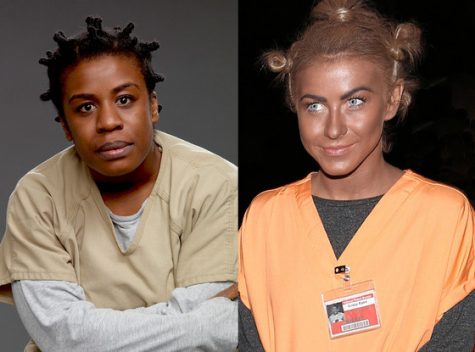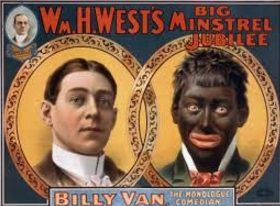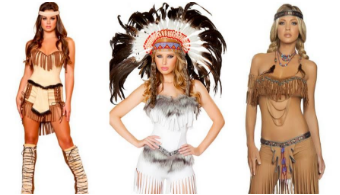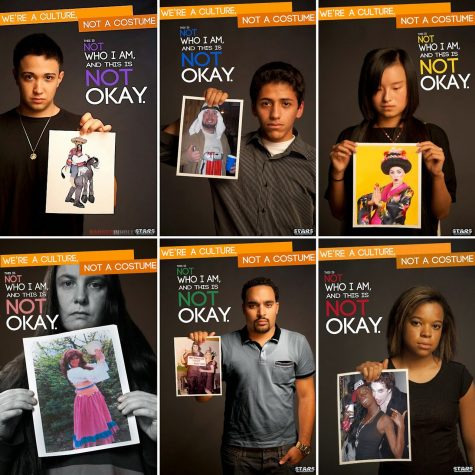Our Culture is Not a Costume
October 17, 2016
Culture Appropriation: (noun) the exploitation of a minority group’s culture in order to mock or financially gain from it.
Because there are hundreds of diverse cultures that collectively form the overall American population, it is no surprise that some ethnic groups can rub off on one another from time to time. Americans that grow up in ethnic neighborhoods may pick up the language, customs, and religious traditions of those surrounding them; it is human nature to adapt to one’s environment. However, culture appropriation goes further than that. There is a very fine line between admiring a culture, imitating it out of respect, and mocking it; mass producing or sexualizing a cultural object or outfit to make a quick buck or look good at a Halloween party falls into the latter category.
An excellent example of this was when Dancing with the Stars personality, Julianne Hough, and friends dressed up as characters from everyone’s favorite Netflix show, Orange is the New Black, during Halloween last year. This was a very cute and common group costume that people imitated all over the nation. However, instead of simply honoring the show by sporting orange or brown jumpsuits, Hough took it one step further: she dressed up as the lovable, kooky character Crazy Eyes by putting her hair up in character’s iconic Bantu Knots and… painting her face black.

The practice of “black-face” was done in the past in order to mock and belittle black people, specifically their skin tone, and is highly offensive and racist. Though Hough claims she didn’t intend her costume to come off as offensive and Crazy Eyes is, indeed, black, her (beautiful) blackness is not what makes Crazy Eyes, well, Crazy Eyes. There are other defining, non-hereditary characteristics to her that could be imitated aside from her skin tone, just as you could classify and recognize Harley Quinn as more than just white.

The reason why her costume is so offensive is because minority groups, historically, have had no power over their lives dominated by a majority group. The dominant groups, typically white, Anglo-Saxon Protestants (WASPs) take advantage of the minorities through systematic oppression. By painting her face black, Hough was bringing back a time when this oppression was especially prevalent. Julianne Hough might have been able to paint her face black for the night to help her depict a more “authentic” Crazy Eyes, but she could never truly comprehend the experiences of those who cannot take off the paint at the end of the night, who live with the history everyday that their skin color is the target or racial discrimination and oppression.

People have been dressing up as Native Americans for years, especially sporting large headdresses. However, in Native American culture, headdresses are sacred objects constructed of feathers that are earned over time. The feathers of many individuals come together to form the headdress of one leader; it’s like a form of voting. To be Native American and to see someone who hasn’t earned such a token of leadership walking around with it at parties is disrespectful. Another misconception is that if one person from a specific culture tells you that they like your costume that reflects their culture then that means that it is ok; one person cannot speak for an entire culture, just like one girl cannot speak for all women.




Malina Yago • Oct 28, 2016 at 11:44 am
I thought this article really addressed the issue of culture appropriation. The use of images with the writing really brought it to life; it allowed me to see the effect and emotional pain that people feel when they are affected by culture appropriation.